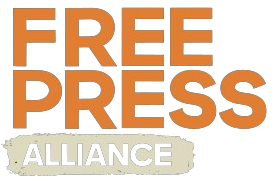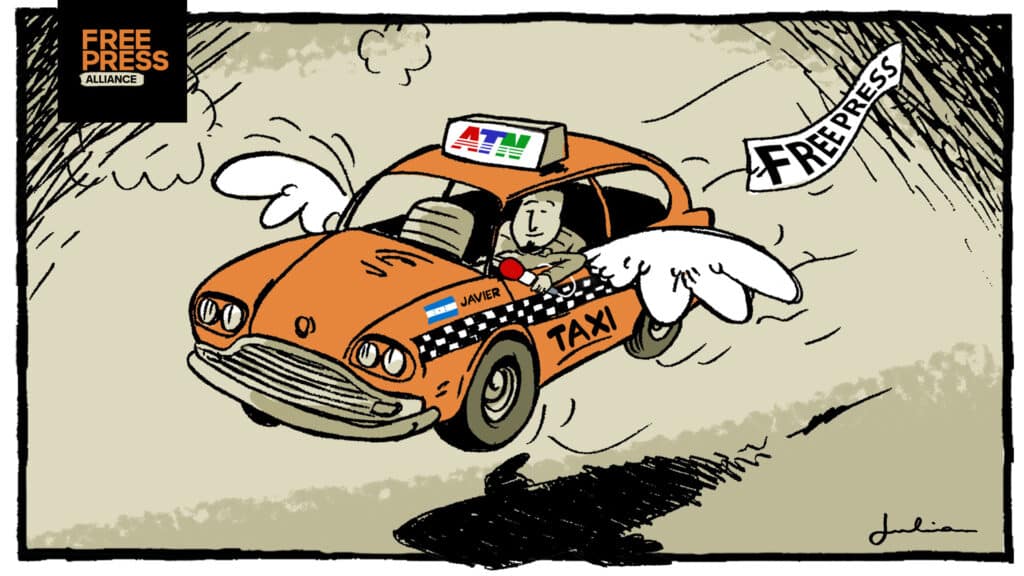Honduras is experiencing a prolonged and profound crisis in press freedom, set within a complex social context for Latin America. The murder of journalist Javier Antonio Hércules Salinas, which took place on June 1, 2025, not only shocked the country’s journalistic community but also exposed the deadly risks faced by media workers in an environment marked by impunity, corruption, and structural violence.
A foretold death
Javier Antonio Hércules Salinas, host of the Facebook news program A Todo Noticias, combined journalism with his job as a taxi driver. A Salvadorian national, he had been living in Honduras for over ten years, reporting on issues of public interest.
This crime did not come out of nowhere. In September 2023, the dangers he faced were already apparent: he was kidnapped and threatened, forcing him to temporarily leave Santa Rosa de Copán. Later, he was incorporated into the National Protection Mechanism for Journalists, which granted him protective measures starting in October 2023. However, these proved insufficient.
According to the Honduran College of Journalists (CPH), his only obligation under the mechanism was to sign a daily log at a police station, there was no physical protection or effective follow-up. Clearly, these measures failed to prevent his murder.
A context of hostility and repression
Since the 2009 coup d’état, Honduras has suffered from institutional erosion. While regular elections are still held, they coexist with systemic corruption, the militarization of public security, and the criminalization of social protest. The 2022 election of Xiomara Castro raised hopes, but three years into her term, many sectors say that impunity persists. There have been no meaningful judicial reforms, and human rights remain inadequately protected.
Independent press, especially outlets unaffiliated with business or political interests, have become an easy target.
Violence against journalists and impunity
From 2001 to May 2025, at least 110 journalists and media workers have been killed, with 88% of cases remaining unsolved, according to the National Human Rights Commissioner of Honduras (CONADEH).
Reporters Without Borders ranked Honduras 142nd out of 180 countries in its 2024 World Press Freedom Index, reflecting the high-risk environment for journalism.
Threats come not only from organized crime and drug trafficking networks but also from state actors who use restrictive laws, smear campaigns, and surveillance to silence critical voices.
Legal instruments as tools of censorship
In recent years, laws that restrict freedom of expression have been created, such as the Cybersecurity Law and the Official Secrets Law. These allow the state to legally prosecute journalists for publishing sensitive or allegedly false information.
Organizations like the IACHR, OHCHR, and Human Rights Watch have warned that the Cybersecurity Law empowers internet service providers to censor content without a court order and creates state bodies with broad authority to block websites.
IFEX-ALC has also criticized reforms to the Penal Code and the cybersecurity law for criminalizing defamation and requiring platforms to store connection data, raising concerns about surveillance and self-censorship.
Media concentration and self-censorship
Major Honduran media outlets are controlled by business groups tied to political or religious power. This concentration, combined with widespread violence, has led to increasing self-censorship. Many journalists, particularly in rural areas, avoid reporting corruption, organized crime, or police abuse out of fear of retaliation.
Voices of resistance
In the face of this hostile climate, independent outlets such as Contracorriente, Criterio.hn, and Pasos de Animal Grande continue their investigative and analytical work. They complement their journalism with strategic use of social media to bypass traditional censorship, though this also exposes them to surveillance, smear campaigns, and online attacks.
Conclusion
The murder of Javier Antonio Hércules Salinas is not an isolated event; it reflects a structural crisis affecting journalism in Honduras. His death, preceded by threats, displacement, and the failure of a weakened protection system, confirms the constant danger faced by journalists who report with independence and public commitment.
In a country where impunity is the norm, laws are weaponized to censor, and both state and private power structures co-opt the media. Practicing journalism is literally an act of resistance. Media concentration, physical and digital violence, and fear-driven self-censorship paint a grim picture of freedom of expression.
At Free Press Alliance, we commend the persistence of independent media and the strategic use of social media as vital spaces for information. Even in the most adverse contexts, there are voices determined to inform. These voices must be amplified, protected, and supported at both the national and international levels, because in Honduras, as in many parts of the world, defending press freedom also means defending society’s right to know.

